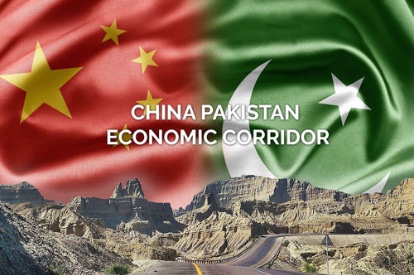“In 2020, the renewable energy projects under CPEC have not been slowed down by COVID-19 outbreak. Each project group of China has worked closely with local employees to ensure the power supply of Pakistan. Pakistan has great potential in renewable energy, covering hydropower, wind energy and photovoltaic power. China will continue to support Pakistan’s energiewende,” stated by 2020 International Cooperation Report on Renewable Energy of China, jointly published by China Renewable Energy Engineering Institute (CREEI) and International Energy Information Platform (IEIP) on 30th July.
538 people, including experts and scholars from the Chinese Society for Hydropower Engineering (CSHE), the Global Wind Energy Council (GWEC) and the China Photovoltaic Industry Association (CPIA), attended the conference.
Zhou Shichun, spokesman of CREEI, said at the conference: “It has become the common consensus and concerted action of all countries to accelerate the global energiewende and promote green and low-carbon development. In 2020, COVID-19 pandemic has ravaged the world, causing the economy to fall into a deep recession globally. However, in the past year, global renewable energy has been growing against the trend. Hence, accelerating development of renewable energy has become an important means for countries to respond to the COVID-19 crisis and achieve green recovery.”
Hydropower is still a major force in China-Pakistan renewable energy cooperation. CREEI is a key member of CPEC energy planning expert group and has carried out a joint study with The National Transmission and Distribution Corporation (NTDC). According to the report, CREEI analyzed: “Pakistan is rich in hydropower resources and has about 40GW of exploitable technology. Up to now, about 10GW of installed hydropower capacity in Pakistan has been developed and the utilization rate has reached 25%, so there is still a huge potential left. With the deepening of energy cooperation under CPEC, the shortage of power supply in Pakistan has been alleviated year by year. With the continuous progress of energy transformation in Pakistan, hydropower, as the major force of renewable energy structure, China and Pakistan have broad space for cooperation in this field.”
In addition, Pakistan is also a key country for China’s international wind power cooperation. Liberty1&Liberty2 50MW Wind Power Project signed in 2020 and contracted by PowerChina, Gul Ahmed, Actll, Artictic wind power projects and ACT II project contracted by GoldWind group was cited as key case.
The report also mentions important activities and consensus between Pakistan and China in the renewable energy sector in 2020: On 25 March 2020, the CPEC Energy Cooperation Working Group held its eighth meeting via video and exchanged their views on related layout, situations and details of renewable energy cooperation under CPEC. On 21 September 2020, the National Energy Administration of China and the Ministry of Energy of Pakistan signed the Agreement on the Adjustment of the China-Pakistan Economic Corridor Energy Project List (2020), in which the two sides reached consensus on adjustment principles and the list.
Zhou said at the conference: “Despite the severe test of the epidemic, the energy cooperation projects under CPEC have been still making steady progress, building a bridge for bilateral cooperation, and the cooperation in renewable energy has made remarkable achievements. Regarding the deep friendship between Pakistan and China, China will firmly continue to support Pakistan’s energy transformation so as the iron-brothers can fulfil the sustainable development goal together.”
















